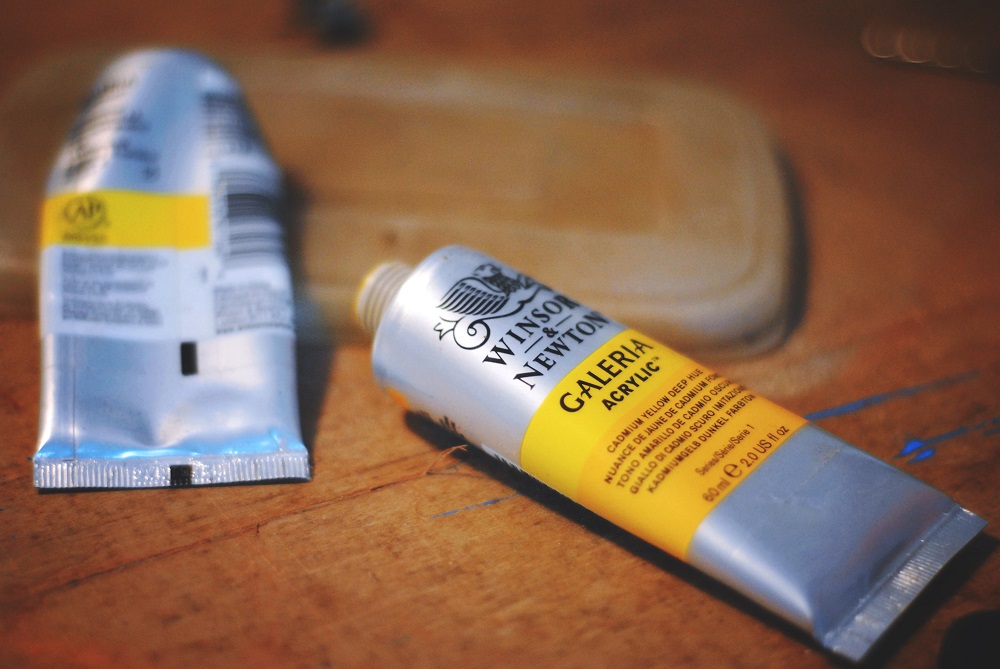Mental health tattoos are a relatively new concept but one that is growing in popularity. They can be a powerful tool for those suffering from mental illness, providing a physical reminder of their strength and resilience in the face of adversity. Many people with mental health tattoos report feeling empowered and motivated by having a tangible reminder of their recovery journey.
Historically, tattoos have been used to mark moments of personal growth or strength, such as a rite of passage, military service, or overcoming a significant obstacle. Self-expression is another common reason for getting a tattoo, as it allows an individual to tell their story in a permanent way. And, of course, promoting healing and recovery is another great reason to get a mental health tattoo.
This article will explore the potential benefits of mental health tattoos, including their ability to aid healing and recovery. It will also provide some tips on how to find the right design for you and what you should know before committing to a mental health tattoo.
The Power of Tattoos in Mental Health

A mental health tattoo can be a physical reminder that you are strong and capable of overcoming your struggles. It can act as a symbol of strength, resilience, and hope. For some people, the act of getting a tattoo is symbolic in itself, representing a commitment to their journey of recovery and self-care.
The physicality of the tattoo can also be a reminder that change is possible; you have the power to shift your outlook and circumstances. It can represent a shift in how you think about yourself and your mental health and even serve as an affirmation of your progress.
Psychologists have also found that tattoos can play an important role in healing. They can remind you to stay connected to your emotions rather than repressing or pushing them away. They can also provide an outlet for expressing feelings that may be difficult to express in words. The mind-body connection is incredibly powerful, and a tattoo can remind you of that connection.
Symbolism and Designs for Mental Health Tattoos
There are many different types of mental health tattoos, and what works for one person may not work for another. Depending on what you want to express, there are a variety of symbols and designs that can be used. Some common symbols for mental health tattoos include the following:
1. Anchor
The anchor symbol is often associated with strength and stability. As a mental health tattoo, it can act as a reminder to stay grounded and focused on your recovery. The anchor also usually comes with a rope, representing connections to others and the support that comes from having strong relationships.
Additionally, a buoy can be used alongside the anchor. This can represent having a safe place to go during tough times. The buoy can also remind you that it’s ok to be vulnerable and ask for help when needed.
2. Butterfly
Butterflies are often seen as a symbol of transformation and renewal. They can represent going through difficult times with strength and courage, eventually emerging on the other side with a new perspective and outlook. Different colors can also carry different meanings, such as hope or joy.
The butterfly’s position is also important; having the butterfly “fly” towards you can remind you that joy and hope are coming your way. A butterfly perched on a flower can also indicate blooming and flourishing. Another is a butterfly emerging from a cocoon, symbolizing personal growth and transformation.
3. Lotus Flower
The lotus flower is seen as a symbol of beauty, growth, and rebirth. The flower grows from murky water, which can represent the struggles that come with mental health issues. Despite these obstacles, the lotus blooming represents the possibility of hope and growth. It also serves as a reminder that while painful and difficult times come, they don’t last forever.
4. Semicolon
The semicolon is one of the most prevalent mental health tattoos and for good reason. The semicolon has become a symbol of hope and resilience, representing the pause of a sentence rather than its end. It’s an inspiring symbol of strength and courage in the face of mental illness.
Friends and families of those struggling with mental illness may get the semicolon tattoo in solidarity. They can also get the semicolon to keep their loved ones in their thoughts and express love and support whenever possible.
5. Serotonin Molecule
The serotonin molecule is an excellent symbol of mental health awareness, as it’s the chemical responsible for helping to regulate mood. Most people battling mental health issues do not feel happy or balanced.
As a tattoo, the serotonin molecule can act as a reminder of the importance of self-care and emotional balance. It can remind you to stay in tune with your mental health and be mindful of how diet, exercise, and sleep affect your well-being. When you’re feeling low, the serotonin molecule can remind you how important it is to take care of yourself.
6. Motivational Word or Phrase
Words and phrases like “strength” or “you are enough” can be a powerful reminder of your worth and potential. They can act as an affirmation of your capabilities and help you to keep pushing forward, despite the challenges you may face.
Different phrases also have different meanings, so you can choose one that resonates with you and your journey. For example, “Be brave” can tell you to confront your fears, while “Breathe” can help you stay in the present moment.
7. Fog/Cloud
The fog or cloud symbol can represent the darkness and confusion that comes with mental health issues, specifically depression. It can also serve as a reminder not to become overwhelmed by these feelings and to stay focused on the light that will eventually come. Sometimes stylized as scribbles or tangled lines, the fog tattoo can remind you to accept your feelings without judgment.
8. Open BirdCage
The open birdcage can symbolize freedom and liberation. People with trauma can identify with this symbol, as it represents breaking free from painful or difficult experiences. It’s a powerful image of healing and recovery. Some people may even choose to get a birdcage with an empty cage, representing the release of something holding them back.
9. Rainbow
Rainbows are a symbol of hope and optimism. While negative thoughts can make it feel like nothing will ever be ok, getting a rainbow tattoo is a good image of brighter days. Using different colors in the rainbow can also remind you of all the emotions and aspects of your life.
Many queer people also choose the rainbow as a symbol of pride. It can represent visibility and a feeling of belongingness. In conjunction to mental health, the rainbow can act as a sign of resilience in the face of adversity. As the LGBTQ+ community often experiences higher rates of mental illness, the rainbow tattoo is a powerful reminder that healing is possible and feelings of joy and acceptance can come again.
10. Tree
The tree symbol is often associated with growth and renewal. It can represent putting down roots, staying grounded in your truth, and letting go of what isn’t serving you. A tree also offers a reminder of the interconnectedness between people and nature, which can be very beneficial on the path to recovery.
Different trees also have different meanings, so you can choose one that resonates with your journey. For example, a weeping willow tree can represent grief and healing, while an evergreen tree can stand for hope and life in the face of difficulty. Some people may even get a tree with blossoms, indicating the promise of new beginnings.
11. Sun
No matter how dark things feel, the sun is a powerful reminder that light will come again. As an image of joy and warmth, it can provide hope and optimism when times are tough. It can also represent strength and resilience, reminding you to stay focused on your recovery goals. Compared to other symbols, the sun is relatively easy to tattoo and can serve as a daily reminder of your inner power.
12. Compass
The compass is a great mental health symbol because it can represent direction and purpose. As a device that helps guide people to their destination, the compass says that you always have a choice about how and where you want to go in life. It can remind you to stay focused on your goals and keep pushing forward, whatever comes.
The direction of the compass is also important; a north-facing arrow can remind you to stay true to yourself and remain mindful of your personal growth. A south-facing arrow can remind you to look within and practice self-compassion. Depending on what you need, there are many different directions and meanings to choose from.
13. Infinity Sign
The infinity sign is a powerful symbol of limitless potential, and it says that your journey has no end. Despite whatever struggles come up, you will always have the power to keep going. It’s an image of strength, resilience, and courage in the face of mental health issues.
The infinity sign can also be used to represent a connection with others, as it can symbolize the boundless love that comes from relationships. It’s a reminder of the importance of friendship and support on the path to recovery. Paired with different symbols, the infinity sign can make a powerful statement of love and hope.
Personal Stories and Testimonials
Many people have found that mental health tattoos make a massive difference in their lives. The permanent marks on their bodies remind them that they are strong and capable of overcoming whatever challenges they face. Here are a few inspiring stories from people who have gotten mental health tattoos for their healing journeys:
1. Sky Gavin
Sky Gavin, a digital media maven, got a tattoo to celebrate surviving her dark days. She chose the line “Protego Maxima,” which is s spell from Harry Potter meant to protect the caster. Her mental health crisis was challenging, but having the tattoo reminds her of her strength and courage in getting through it.
2. Ariana Grande
Pop star Ariana Grande has been vocal about her struggles with anxiety and PTSD, especially after the bombing at her Manchester concert in 2017. To honor the victims and their families, as well as her recovery and resilience, she got a bee tattoo behind her left ear.
3. Glennon Doyle
Author and activist Glennon Doyle got the words “Be still” tattooed on her wrist. For her, the phrase is a reminder to stay in touch with her emotions and take a break from all the noise and distractions of life. As a recovering bulimic, she also uses the phrase to remind her not to stuff down her feelings but rather to stay present and experience them.
4. Selena Gomez
Selena Gomez has been an open supporter of mental health awareness and treatment. Inspired by Project Semicolon, which uses the semicolon to represent perseverance in mental health, she got a tattoo of a tiny semicolon on her wrist.
5. Lady Gaga
Lady Gaga revealed that she had the unity symbol tattooed on her shoulder after meeting fans who are survivors of sexual assault. To reciprocate their support for her, she is giving them a platform to share their stories and find strength in each other’s experiences. This tattoo reminds her of her mission to provide support and healing for survivors everywhere.
Therapeutic Elements of the Tattooing Process

Many people still have negative and even fearful perceptions of tattoos in the modern world. However, the therapeutic elements of the tattooing process can be incredibly powerful and healing for those struggling with mental health issues.
When it comes to mental health tattoos, the actual inking process can be therapeutic in its own right. Many people find that the act of getting a tattoo is calming and cathartic, providing a distraction from the worries of life. The painful needle can also serve as an outlet for emotions that may be difficult to express in words.
Of course, safety should be the top priority when it comes to getting a tattoo. The role of the tattoo artist is incredibly important, and it’s essential to find a professional who understands the sensitive nature of mental health tattoos. They should be able to provide a safe and supportive environment in which to explore this form of self-expression.
The artist may also be able to offer helpful advice when it comes to design and symbolism. They can provide insights into which symbols or images might carry the most meaning for you. The tattoo’s placement can also be symbolic, as it will determine how easily you can see it and be reminded of its message. Ultimately, the choice is entirely subjective and should reflect your personal story.
The client-artist relationship is part of what makes mental health tattoos so powerful. The tattoo can be seen as a symbol of strength and courage, a reminder that you are in control of your destiny. This feeling of empowerment is crucial for those with mental health issues. Letting someone ink your story onto your body can symbolize trust, vulnerability, and faith in yourself and the future.
Tattoo and Mental Health Organizations
In recent years, a movement has been growing around the intersection of tattoos and mental health. This includes organizations like Project Semicolon, which promotes awareness of mental illness through the symbol of the semicolon. They have held events and fundraisers to raise money for mental health initiatives, providing support and resources to those in need. Project Semicolon also offers products like clothing, artwork, and jewelry to promote mental health awareness.
In 2015, many tattoo shops across the US held a fundraising event for suicide prevention and mental health awareness. Shops offered discounted tattoos with mental health symbols or inspirational words, and a portion of the proceeds went to organizations like the American Foundation for Suicide Prevention (AFSP). These events were incredibly successful, and many shops continue to donate proceeds from mental health tattoos to charitable organizations.
In 2019, tattoo shops across Southwestern Ontario also began offering discounted semicolon tattoos to raise awareness for mental illness. These shops are partnering with Keeping Kids Warm, a group of knitters that support a home for homeless youth. This is a great example of how the tattoo industry can use its resources to make a difference in people’s lives.
The “Me Too” movement is also making strides in connecting tattoos to mental health awareness. As part of the movement, many people are getting tattoos that symbolize their journey and recovery from sexual assault. These tattoos help survivors reclaim their sense of self and identity while also helping to break the stigma surrounding mental health issues.
Research and Studies on Mental Health Tattoos
Tattoos have long been associated with deviant behavior, rebellion, and criminality in Western cultures. A study by Martin and Morris Romans in 1998 found that women with tattoos reported more psychiatric symptoms and increased alcohol use. Their findings suggest that tattoos may be associated with heightened psychological distress. Sexual abuse was reported more often in women with tattoos.
About a decade ago, however, there was an increased interest in exploring the benefits of tattoos. In particular, studies have explored the potential therapeutic effects of getting a tattoo for those struggling with mental health issues. The stigma of having tattoos has decreased, and people are now recognizing the healing power of tattoos for mental health.
Various reasons for getting a tattoo, such as the need to express identity or cope with difficult experiences, have been identified. A study by the American Journal of Human Biology found that tattoos reduce cortisol levels, leading to an overall improvement in immune functioning and stress reduction. The study also suggests that tattoos can be useful for treating depression and anxiety.
According to psychologist, Dr. Joanna Livingstone, director of Key Psychology Services, tattooing is a form of self-expression that can enhance self-esteem, which is both critical for mental well-being. People who get tattoos often describe feeling liberated and strong, which is an incredibly empowering experience for those who are struggling with mental health issues.
Ethical Considerations and Precautions

Although there are many potential benefits to getting a mental health tattoo, it’s important to take certain ethical considerations and precautions into account. First and foremost, tattooing is a permanent choice and should not be done on a whim. It’s important to make sure that the symbol or phrase you choose is meaningful to you and that you’re comfortable with the location on your body.
It’s also important to be aware of any potential risks associated with the tattooing process. Tattoos can increase the risk of infection, and it’s essential to make sure that you go to a professional and reputable tattoo shop. It’s also important to check for any allergies or medical conditions that the process could negatively impact.
Tattoo therapy is also a complex and highly personal experience. It’s important to be aware of any potential emotional triggers or traumas that could arise in the process. Mental health tattoos can be incredibly powerful and healing, but it’s essential to make sure that you feel safe and in control of the experience.
Finally, it’s important to remember that mental health tattoos are not a substitute for professional medical care or treatment. They can be a powerful form of self-expression and healing, but they should be used in conjunction with other forms of treatment. A certified mental health professional can provide the necessary guidance and support to ensure that your journey is safe and effective.
Mental health tattoos can be incredibly powerful and meaningful symbols for those struggling with mental health issues. They are a form of self-expression and a reminder that you are strong and capable of overcoming difficulties. Not only can they provide a physical symbol of strength, but the process of getting a tattoo can also be therapeutic in its own right.
Considering getting a mental health tattoo is a big decision, and it’s important to be aware of any potential risks or ethical considerations. It’s also essential to find a professional and reputable tattoo shop and ensure that the symbol or phrase you choose is meaningful to you. Mental health tattoos can be a powerful form of self-expression and healing, but they should be used in conjunction with other forms of treatment. Get professional advice and take the necessary precautions before getting a tattoo for mental health reasons.




